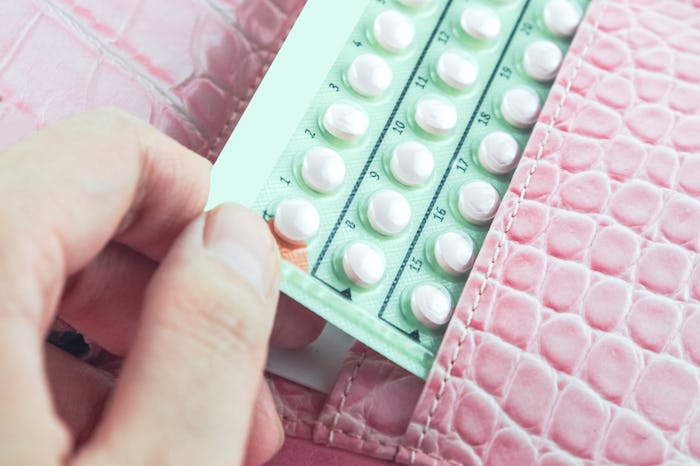Life
Here's When You Should Start Taking Birth Control, According To An Expert
As a mom to a newly-minted teenager, conversations with my kid have seemingly gone from from playdates to periods overnight. It's safe to say, parenting a teen is an entirely different ballgame. And whether I feel prepared or not, I know she's starting to explore her sexuality and asking what age you should start taking birth control. And while I might not have all the answers, I can help support my daughter as she navigates this new time in her life.
I consulted Dr. Huma Farid, MD, an OB-GYN at Harvard Medical School and Beth Israel Deaconess Medical Center in Boston, Massachusetts, for more information on when teens can safely start taking birth control.
According to the American College of Obstetrics and Gynecologists (ACOG), your child should have their first visit to discuss their sexual and reproductive health at some point between the ages of 12 and 15, ideally before they start having sex. Per the same site, not only is this a good opportunity for a teen to ask all of their pressing questions about sex, but it's also important for doctors to talk to teens about birth control, regardless if they have been or are currently sexually active.
"The goal is to establish the beginnings of a relationship based on trust and provide correct information," Farid tells Romper. "Gynecologists can use this opportunity to counsel patients about pregnancy prevention, sexually transmitted infection prevention, safe and consensual sexual practices, and prevention of cervical cancer through the vaccination against HPV."
For teens, this first trip to the gynecologist doesn't necessarily have to be about birth control, either. "It may also be helpful in evaluating any issues that adolescents have with their menstrual cycles or any other reproductive concerns, and does not necessarily entail a pelvic exam, unless otherwise indicated," Farid explains.
As for when to start taking birth control, according to Farid, it's totally up to each individual. 'When to begin using hormonal birth control is a personal decision that depends on what a [person's] health and reproductive goals are," she says. "In general, [a person] can initiate birth control as soon as they get their first period."
When it comes to hormonal birth control, there are other benefits for teens, notes Farid. "In my experience, adolescents and [people] generally initiate birth control to help regulate their menstrual cycles, for relief of pain during menstrual cycles, and for pregnancy prevention."
The type of birth control you choose depends on you, your needs, and your health history, so there isn't really a set age in which someone should be on birth control. "I offer my teenage patients all types of birth control, from pills to the hormonal implant as well as the IUD," Farid tells Romper. "I want them to think about each option and choose carefully between those that work best for their life."
Per the ACOG, that conversation should absolutely include long-acting reversible contraceptives (LARCs) — like IUDs, and implants — which are the most effective, have the least contraindications, and are the least complicated to use. According to Dr. Rachael Phelps, MD, medical director of Planned Parenthood of Central and Western New York, who spoke at the 2017 annual meeting of the American Academy of Pediatrics, while 72% of teens would choose a LARC over other forms of birth control, only 4% currently use one. This means that a large population of teens aren't able to access the safest and most effective birth control available.
"I think that long acting reversible contraception (such as an implant, an IUD, or the shot) is a wonderful option for teens as it does not require taking a daily pill," Farid tells Romper. "For those patients who do not feel comfortable with an implant or an IUD, a pill would also be a great option. I encourage them to set a recurring alarm on their phone to remind them to take the pill at the same time daily."
She stresses that no matter what birth control method you choose, it's important to use condoms, too. "I remind all of my patients that only condoms prevent against both pregnancy and sexually transmitted infections, so they should all receive the vaccine against HPV and use safe sex practices with every sexual encounter."
This article was originally published on
